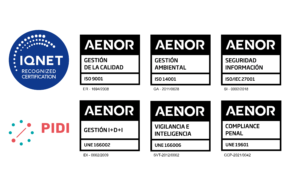The Sevillian technology company Agrosap (Precision Agricultural Solutions S. L.) is developing, in collaboration with the University of Seville and other European partners, an R&D&I project funded by CTA (Technological Corporation of Andalusia) through the European Era-Net Cofund ICT-AGRI-FOOD to develop a technology that will reduce mycotoxin contamination of foodstuffs from barley and wheat.
The health effects of mycotoxins range from acute intoxication to long-term effects such as immunodeficiency and cancer. The POSHMyCo project will establish for the first time a novel solution to reduce the risk of mycotoxin contamination in food products from barley and wheat grains through the use of smart agricultural technologies. This will reduce risks to human and animal health, improve farmers’ profitability and reduce the environmental footprint of agricultural production.
In addition to Agrosap and the University of Seville, the project consortium includes the University of Ghent (Belgium) as coordinator, the Aristotle University of Thessaloniki (Greece), the Vytautas Magnus University (Lithuania) and the Swedish University of Agricultural Sciences (Sweden). The project is funded by CTA, but within the framework of the European Era-Net Cofund ICT-AGRI-FOOD, to which CTA belongs and which is a grouping of European funding agencies. The Era-Net allows transnational collaborative R&D&I projects to be developed, with each member of the consortia being a beneficiary, financed by the funding agency of the corresponding country and co-financed by the European Commission.
“Thanks to CTA, we have been able to access funds to continue building the future of the Andalusian agri-food sector using precision agriculture” says Agrosap founding partner and University of Seville researcher Manuel Pérez, who adds that he especially values CTA’s incentive program for its impact on public-private collaborations.



